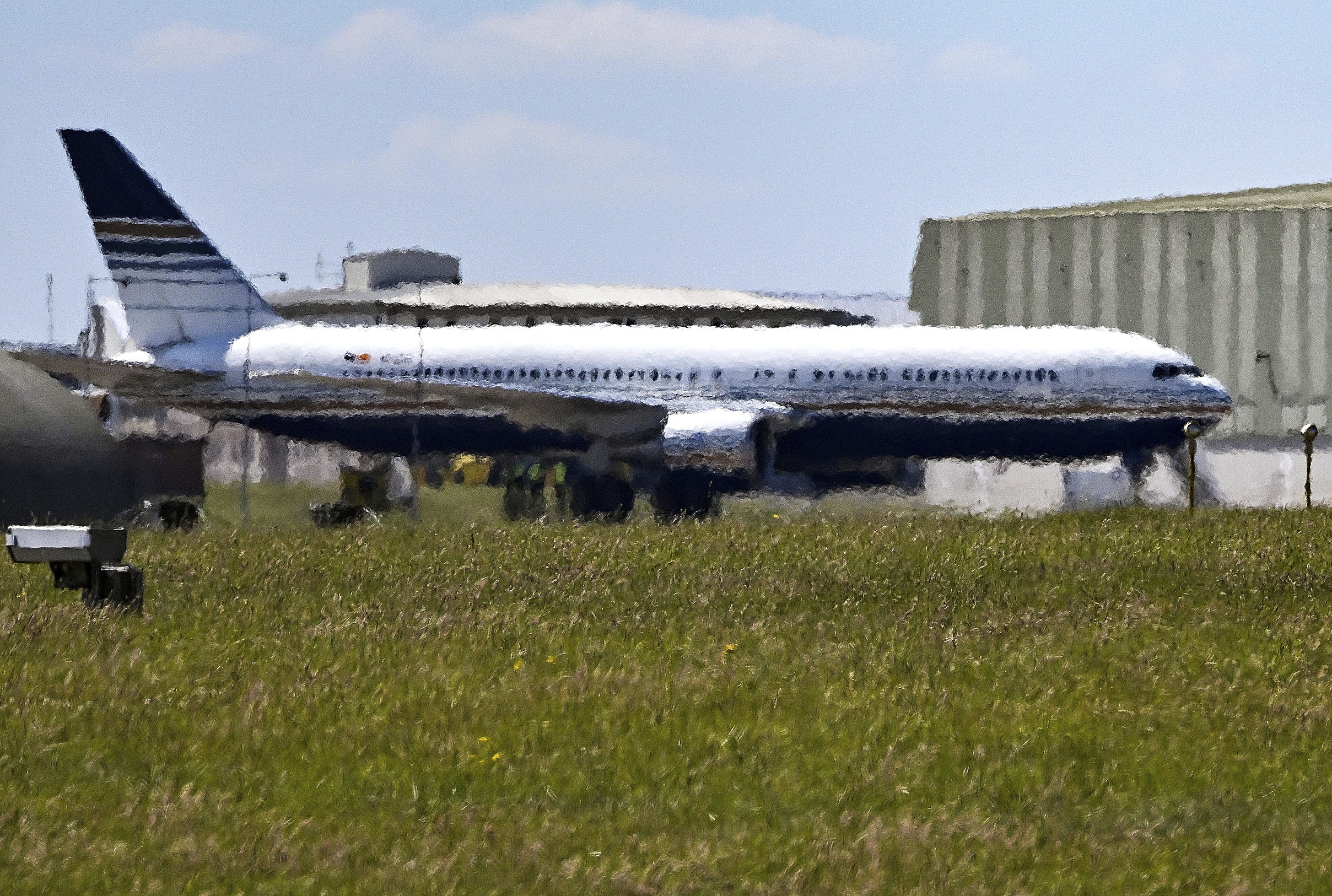Neither the anathema of the Anglican bishops condemning the plan as “immoral”, nor the harsh accusations of the UN commissioner for “violating the fundamental principles of refugees”, have been able to dissuade Boris Johnson in his second international challenge of the week after the Ireland Protocol: the deportation of pending asylum migrants to Rwanda.
A Spanish charter company, Privilege Style, had the rare privilege of being chosen for the controversial inaugural flight of more than 6,000 kilometers to Kigali in a Boeing 767. Six immigrants (three Iranians, two Iraqi Kurds, one Albanian and one Vietnamese) were going to embark tonight, while another 25 managed to avoid the passage, when at the last minute the Human Rights Court intervened by filing an appeal to stop the expulsion of one of those affected.
“Ever since I learned that I was among those who were going to be deported to Rwanda, it is difficult for me to communicate and be able to eat and I have not been able to rest: I prefer to die before being transferred there,” was the testimony of a 25-year-old Iranian who has appeared before the judge hours before the plane took off, amid desperate attempts to block the plan in court by associations such as Care4Calais, Asylum Aid or Detention Action.
Boris Johnson himself has vigorously defended the deportations before his Council of Ministers, despite acknowledging that he had received “unexpected” criticism. Prince Charles has come to describe the plan as “appalling” and 25 bishops – with the Archbishop of Canterbury, Justin Welby, at the forefront – has condemned the deportations in an open letter to ‘The Times’ as “a shame for the United Kingdom “, which should treat refugees “with compassion and justice” because of their Christian heritage.
For his part, Filippo Grandi, UN High Commissioner for Refugees, has assured that the British government’s deportations to Rwanda represent “a violation of the fundamental principles of refugees.” Grandi has stated that the UN has offered London “many suggestions” as an alternative to “simplify and speed up” asylum cases within a framework of justice, including cooperation with European transit countries to share the burden of receiving immigrants.
“We have to make a clear distinction between those who arrive in the United Kingdom by legal means and those who do so in a dangerous and illegal way by crossing the Channel, which is what we want to avoid,” stressed Boris Johnson, who has criticized legal maneuvers to frustrate the plan sponsored by his Secretary of the Interior, Priti Patel.
“The world of lawyers is very good at choosing ways to try to stop the government from applying what we believe to be a sensible law”, specified the ‘premier’. Johnson has even left open the possibility of a UK exit from the European Convention on Human Rights to reduce legal hurdles: “Some laws may need to be changed on the fly – all those options are under consideration.”
One day after the challenge launched to the EU with the law that unilaterally modifies the Irish Protocol, the Government of Boris Johnson has therefore returned to the fray with another controversial measure already practiced previously -and with unequal results- by the Governments from Australia and Israel.
Facing a barrage of criticism, Foreign Secretary Liz Truss has endorsed the Rwanda plan as “entirely moral.” “The people who are immoral are the traffickers who deal in human misery,” she added. “Those who criticize the plan should propose an alternative that works. Our policy is completely legal.”
Despite acknowledging that there would be few crew members on the first flight, Truss has predicted that, by the end of the year, “a significant number of immigrants” who entered the United Kingdom illegally will have been deported. The flow of immigrants crossing the English Channel continues, however, to increase since the controversial announcement.
Last Monday, 138 people arrived on British shores in inflatable boats, and on Tuesday 400 people, warned by the good weather and rescued by the British coastguard, disembarked in Dover: most of them men, but also twelve children and a woman in an advanced state of gestation.
More than 10,260 immigrants have crossed the English Channel so far this year. The figure is already double that of last year, when the record of 28,000 immigrants was reached at the end of the year. The British government plans to step up its efforts with a social media propaganda campaign warning those who dare to cross the Channel that their final destination will be Rwanda. The dissuasive measure has not taken effect at the moment.
The British government – which came to consider Albania and the remote island of Saint Helena as possible destinations for the deportations – has finally sealed an agreement this year with the Government of Rwanda for the implementation of the pilot plan that will last until 2027. The Government of Kigali commits to providing accommodation and support for the duration of asylum applications and to guarantee access to education and the labor market for five years if the application is approved. If denied, they face a second deportation, possibly to their home country.
The plan has also received numerous criticisms on the economic flank. The British government will initially contribute around 140 million euros to the Rwandan government, but some estimates put the annual cost per immigrant at over 15,000 euros per year. “It would be cheaper to put them up at the Ritz in London,” said Labor MP Chris Bryant.
Only the first flight this week was estimated at half a million pounds (about 600,000 euros). The Boeing 727 has a capacity of 218 to 269 passengers and was initially going to travel with 130 passengers, reduced to 31 last weekend, and finally reduced to less than ten due to legal disputes. The British Government has gone so far as to claim that if the plane had traveled with a single traveler “it would have justified the money”.
Conforms to The Trust Project criteria
















